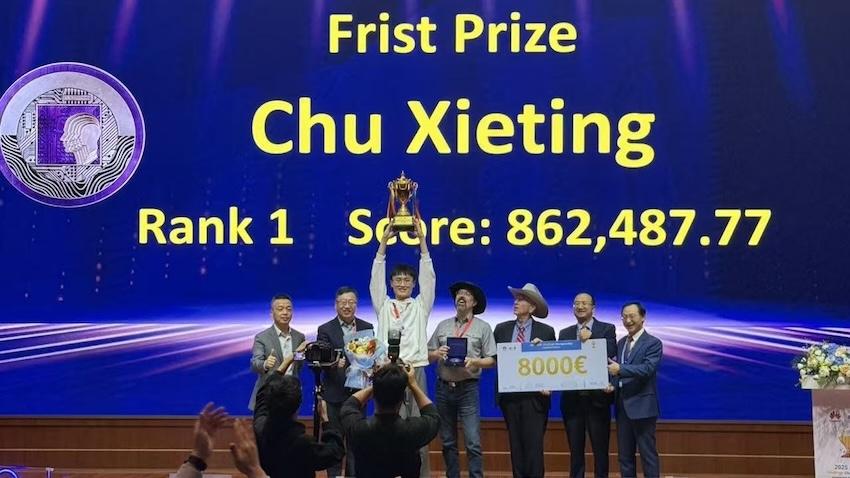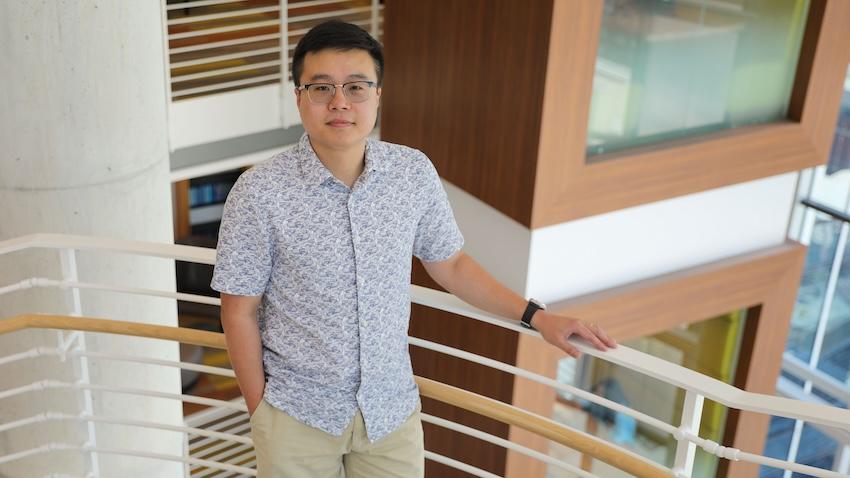
Students Recognized for Machine Learning Research
MLCommons selected four Georgia Tech students to participate in its 2025 Rising Stars cohort.
Payman Benham, Sixu Li, Irene Wang, and William Won were chosen from over 150 applicants based on their machine learning (ML) and systems research and contributions.
A two-day Rising Stars workshop was held at Meta’s headquarters in May, where the participants showcased their work and interacted with researchers and program alumni through panels and presentations.
Benham is a Ph.D. candidate in computer engineering. His research focuses on efficient artificial intelligence (AI), systems for ML, and ML for systems. Benham is specifically focused on reducing the latency, memory requirements, and energy consumption of systems with various machine learning workloads. He is advised by the School of Computer Science (SCS) Associate Professor Alexey Tumanov. Previously, Benham was awarded the 2024 NVIDIA Graduate Fellowship and 2023 Qualcomm Innovation Fellowship.
“This recognition reinforces my commitment to advancing efficient AI and motivates me to further push the boundaries of research and its translation to real-world products,” Benham said. “It is truly inspiring to join a community that values impactful, practical research and actively works to advance the broader ML ecosystem.”
Li is a Ph.D. student whose research focuses on efficient computer architecture for 3D intelligence and neural rendering. Li said his long-term goal is to build scalable and general-purpose substrates for real-time, high-fidelity 3D perception and synthesis. He is advised by SCS Associate Professor Yingyan (Celine) Lin.
Previously, Li’s research has earned him the best paper award at the 57th IEEE/ACM International Symposium on Microarchitecture (MICRO 24) and third place in the Ph.D. forum at the 2025 Design Automation Conference.
Wang is a second-year Ph.D. student advised by SCS Assistant Professor Divya Mahajan, who is jointly appointed in the School of Electrical and Computer Engineering (ECE). Her research takes a full-stack co-design approach to enable scalable, robust, and energy-efficient training of large language models (LLMs).
Wang said she is excited to leverage the connections she’s built through the Rising Stars program to collaborate with and learn from others across different layers of the ML and systems stack. She also mentioned that the program’s workshop was an inspiring experience.
“I appreciated the opportunity to connect with peers and senior researchers, and to learn about the wide range of work happening at the intersection of machine learning and systems,” Wang said.
Won is a Ph.D. candidate in computer science advised by ECE Associate Professor Tushar Krishna. Won’s research interests focus on software-hardware optimizations of collective communication in distributed machine learning. He aims to study both software and hardware-centric approaches to enhance the performance of collective communications in distributed ML systems, making AI more efficient and accessible. Won will start as a postdoctoral researcher at Advanced Micro Devices, Inc. (AMD) in September.


